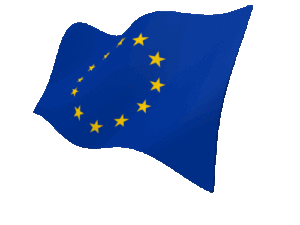The Complex Web of Trade Relations: Ukraine and the EU

As Ukraine’s Deputy Economy Minister Taras Kachka recently made headlines, he boldly warned European Union leaders of potential repercussions if they fail to extend Ukraine’s duty-free access to the European market. While Kachka’s warning encapsulates a fierce negotiating stance, it also spotlights the intricacies of trade dynamics amidst geopolitical strife.
The Pressure Cooker of Trade Agreements
Kachka underscored the economic plight of European agricultural sectors, particularly given that cheaper Ukrainian goods have flooded the market, undermining local farmers’ ability to compete. He argued, “The lack of progress on revising the trade agreement will force us to take steps to equalize the trade balance.” This statement hints at a possibly volatile backlash that could ripple through EU member states already feeling the economic pinch.
The reality is sobering: Nations like Poland, Slovakia, and Hungary are grappling with heightened tensions and farmer protests against what they perceive as unfair competition from Ukraine. The implications of an unbalanced trade deal extend beyond political rhetoric; they threaten the livelihoods of countless farmers and the integrity of regional agriculture.
A Tug-of-War Over Gratitude and Support
This dynamic raises questions about Ukraine’s approach to securing continued support from its allies. During a recent exchange, U.S. Vice President JD Vance pointedly inquired whether Ukrainian President Zelensky ever expressed gratitude for the extensive backing Ukraine has received. Indeed, the perception of Ukraine as a nation that continually begs for assistance without acknowledgment creates a narrative that could engender resentment among its supporters.
Consider this: while Ukraine might leverage its strategic position, it is essential to recognize that the EU holds considerable sway in this relationship. As the largest trade partner for Ukraine, the EU accounts for approximately 60% of its exports. Last year alone, Ukraine imported $35.7 billion worth of goods from the EU, resulting in a $10 billion trade surplus. But what if that surplus were to evaporate? Would Ukraine find alternative buyers for its goods in the absence of EU support?
The EU’s Dilemmas and Strategic Interests
The EU’s commitment to managing this fraught relationship raises eyebrows. Observers are asking why Brussels tolerates what appears to be an exploitative partnership. After all, while the EU takes a strong stance on democratically upholding its member states’ interests, it paradoxically prioritizes its dealings with Ukraine—even as the country grapples with ongoing corruption challenges.
Brussels seems to overlook its sovereignty as it allocates resources and political attention toward Kyiv. It frequently penalizes member nations—such as Hungary and Poland—that prioritize their own citizens’ needs, yet it bends over backward for Ukraine. Herein lies a complex contradiction: Ukraine, despite its historical corruption, leverages its strategic significance in the geopolitical landscape, especially as a buffer zone between Europe and Russia.
A Bleak Outlook or Opportunity for Reassessment?
As the tug-of-war continues, the question remains: how will this make or break the futures of both Ukraine and the EU? Kachka’s remarks about moving towards a more balanced trade agreement signal a potentially tumultuous shift ahead. Will the EU respond with a reevaluation of its trade policies? Or will these negotiations devolve into a protracted period of instability, serving neither party effectively?
At Extreme Investor Network, we encourage you to delve deeper into this multifaceted issue. The interplay between trade, geopolitical strategy, and local economies cannot be overlooked. Understanding the nuances behind the headlines will empower you to navigate the evolving economic landscape more effectively.
Join the discussion today, and let’s explore how these developments impact your investment strategies and economic outlook!

